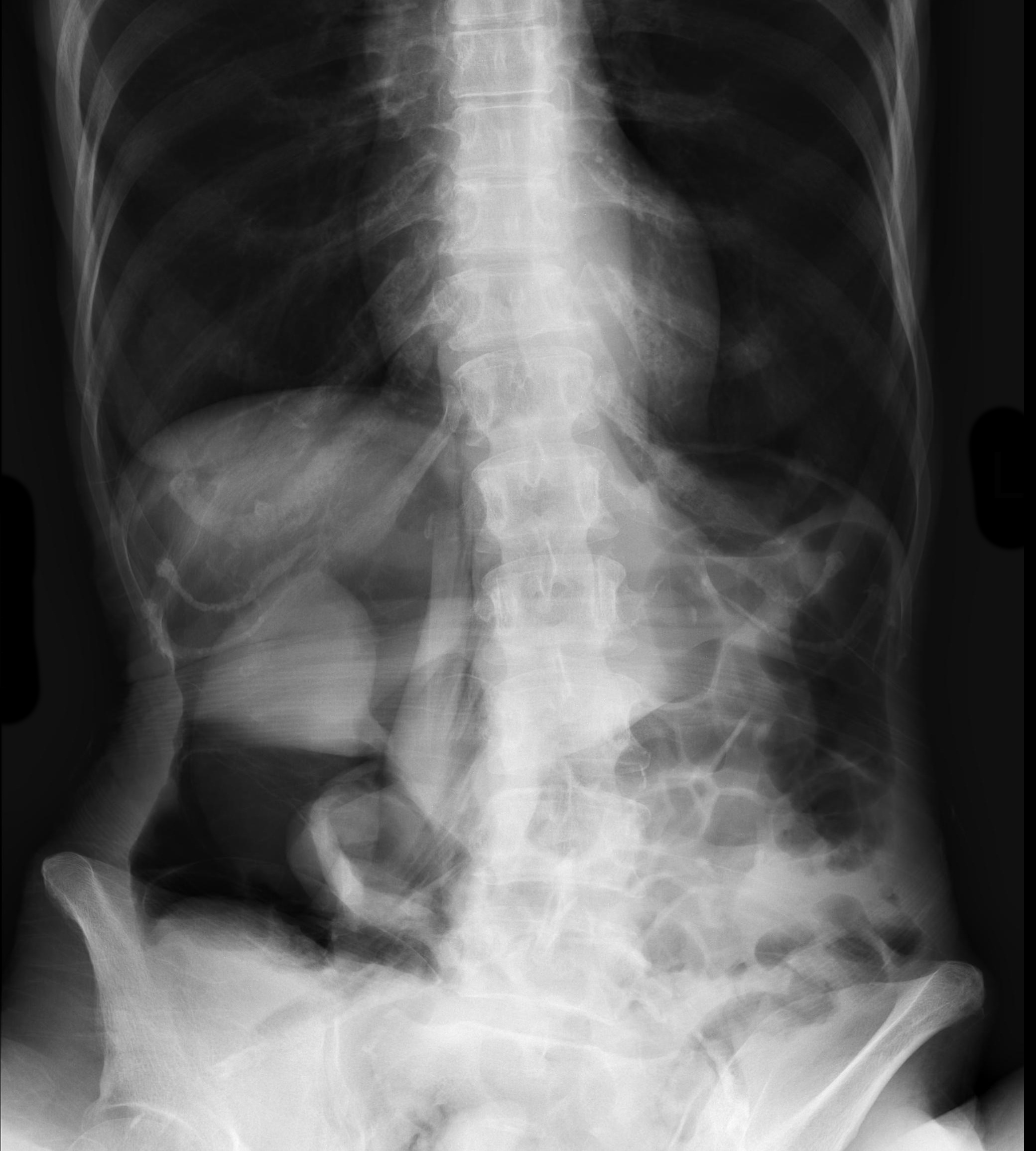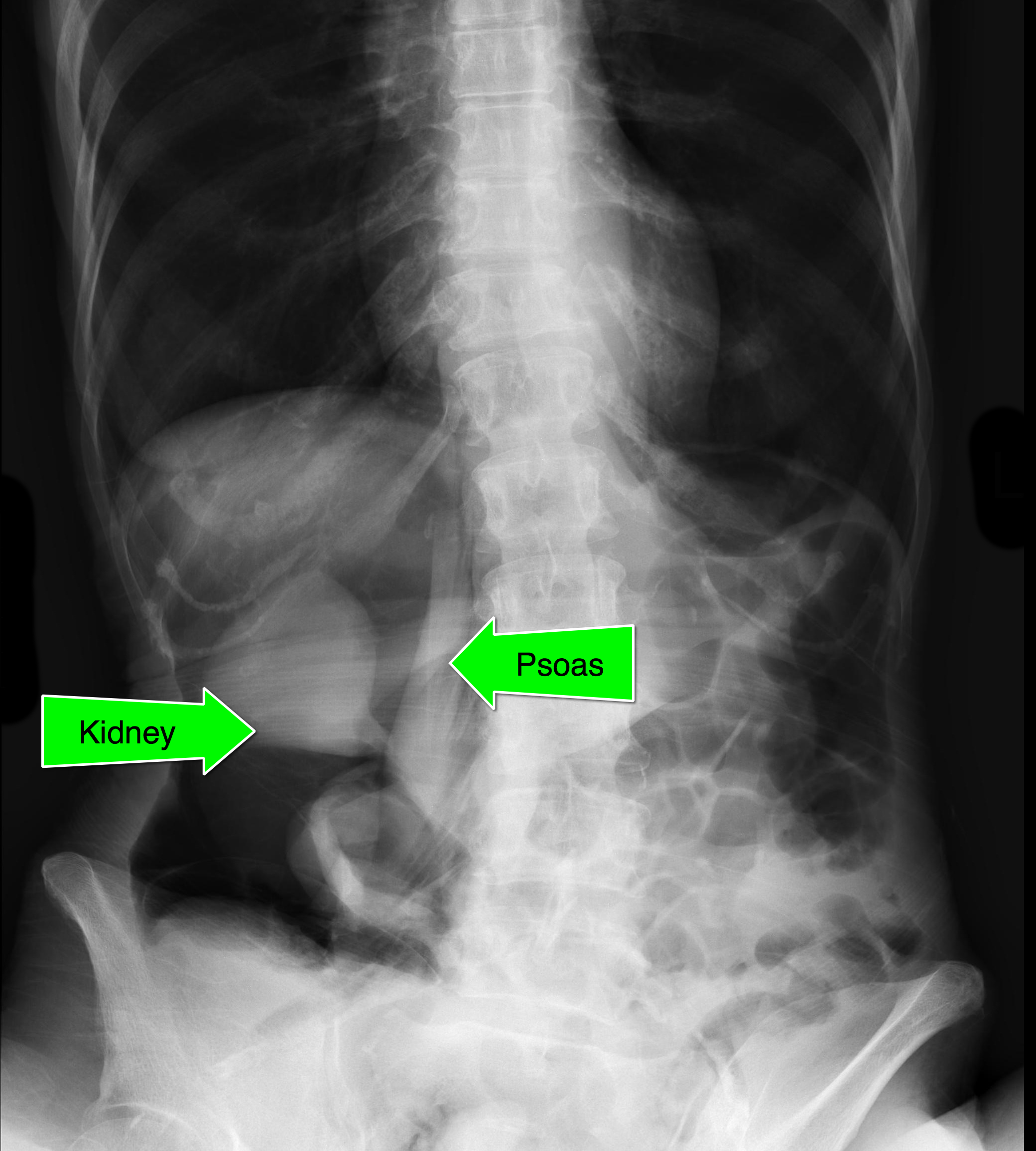Category: Neurology
Keywords: Seizure, Status Epilepticus, Dissociative Agents (PubMed Search)
Posted: 11/26/2015 by Danya Khoujah, MBBS
Click here to contact Danya Khoujah, MBBS
Ketamine has been the drug du jour for everything from agitation to pain, but status epilepticus?
Looking at the pathophysiology of seizures, they occur due to an imbalance between excitatory mechanisms (through glutamate at the NMDA receptors) and inibitory mechanisms (at GABA receptors). The mainstay for seizure treatment has been mostly potentiation of the inhibitory mechanisms, but why not inhibit the excitatory mechanisms at the NMDA receptors?
Ketamine is the only NMDA antagonist that has been investigated for refractory status epilepticus, mostly in retrospective small series, with only 3 prospective cohort studies, totaling to 162 patients (110 adults and 52 pediatrics). Variable results were recorded, from studies with complete response in all patients to complete treatment failure, with a total of 56.5% of the adult patients having electrographic response. The optimal bolus dose appears to be 1.5-4.5 mg/kg, with an infusion of up to 10 mg/kg/hour.
Bottom Line? Consider using ketamine in patients who are in refractory status - after benzodiazepines, a 2nd line agent (such as fosphenytoin, valproic acid or levetiracetam) and IV anesthetics have failed.
(NMDA: N-methyl-D-aspartate, GABA: -aminobutyric acid)
Zeiler FA. Early Use of the NMDA Receptor Antagonist Ketamine in Refractory and Superrefractory Status Epilepticus. Hindawi 2015; 831-60
Category: Critical Care
Keywords: COPD, respiratory failure, antibiotics, ICU (PubMed Search)
Posted: 11/24/2015 by Daniel Haase, MD
Click here to contact Daniel Haase, MD
--The role of antibiotics in acute exacerbations of COPD remains controversial in many settings. However, a recent Cochrane review concludes that antibiotics have "large and consistent" benefit in ICU admissions [1]:
--However, patients on antibiotics had increased side effects, are at risk for increased drug-drug interaction (think azithromycin/levofloxacin), and the effect on multi-drug resistance is unclear.
--GOLD Guidelines are a bit more liberal with their recommendations for antibiotics [2], recommending antibiotics based on symptoms or in patients needing mechanical support.
--TAKEAWAY -- if your patient needs BiPAP or ICU, they should also get antibiotics!
1. Vollenweider DJ, Jarrett H, Steurer-Stey CA, Garcia-Aymerich J, Puhan MA. Antibiotics for exacerbations of chronic obstructive pulmonary disease. Cochrane Database Syst Rev. 2012 Dec 12;12:CD010257. doi: 10.1002/14651858.CD010257. Review. PubMed PMID: 23235687
2. http://www.goldcopd.org/uploads/users/files/GOLD_Pocket_2015_Feb18.pdf
Category: Visual Diagnosis
Posted: 11/23/2015 by Haney Mallemat, MD
(Updated: 12/5/2015)
Click here to contact Haney Mallemat, MD
An elderly patient presents with a history of weight loss and chronic constipation. The abdominal Xray is shown below. What's the diagnosis?
This one is tricky so here's a hint: why is the right kidney and psoas muscle so well defined?


Follow me on Twitter (@criticalcarenow)
Category: Airway Management
Keywords: back pain, steroids (PubMed Search)
Posted: 11/21/2015 by Michael Bond, MD
Click here to contact Michael Bond, MD
Steroids and Back Pain:
This pearl, https://umem.org/educational_pearls/2805/, by Dr. Corwell reported on the trail published in JAMA that showed that Steroid use does NOT help in the treatment of acute sciatica. But what about just general back pain. Do steroids help with that?
An article published in January in the Journal of Emergency Medicine, http://dx.doi.org/10.1016/j.jemermed.2014.02.010, reported on a randomized controlled trial of prednisone 50mg daily for 5 days versus placebo for the treatment of Emergency Department patients with Low Back Pain.
The study showed that at follow-up there was no difference between the groups in respect to pain, resuming normal activities, returning to work, or days lost from work. More patients in the prednisone group then the placebo group sought additional medical treatment (40% vs 18%).
CONCLUSION: The authors detected no benefit from oral corticosteroids in ED patients with musculoskeletal back pain, and it might actually increase their chance of returning for additional medical care. Just say NO to steroids in back pain.
Eskin B, Shih RD, Fiesseler FW, Walsh BW, Allegra JR, Silverman ME, Cochrane DG, Stuhlmiller DF, Hung OL, Troncoso A, Calello DP. Prednisone for emergency department low back pain: a randomized controlled trial. J Emerg Med. 2014 Jul;47(1):65-70. doi: 10.1016/j.jemermed.2014.02.010. Epub 2014 Apr 13.
Category: Pediatrics
Keywords: air enema, intussusception (PubMed Search)
Posted: 11/20/2015 by Jenny Guyther, MD
Click here to contact Jenny Guyther, MD
Mehul V, Ravel PC, Minneci K et al. Improving Quality and Efficiency for Intussusception Management After Successful Enema Reduction. Pediatrics. 2015; 136 (5); e1345-e1352.
Category: Toxicology
Keywords: e-cigarettes, liquid nicotine, nicotine toxicity (PubMed Search)
Posted: 11/19/2015 by Hong Kim, MD
Click here to contact Hong Kim, MD
Electronic cigarettes have been gaining popularity in the U.S. as a smokeless delivery system for nicotine. These devices require liquid nicotine (e-liquid) that are vaporized and inhaled (vaping).
E-liquid can have nicotine concentration as high as 100 mg/mL, which are diluted prior to use. When ingested in high concentration and in sufficient volume (1 vial = 15 mL) patients can develop significant nicotinic toxicity. Recently a case of cardiac arrest has been reported after ingesting two 15 ml vial (100 mg/mL).
Nicotine mimics the effects of acetylcholine (Ach) release by binding to nicotinic receptors located in:
Clinical manifestation of toxicity (similar to cholinergic toxidrome) is biphasic with early central stimulation followed by depression. (see table below)
|
| GI | Respiratory | Cardiovascular | Neurologic |
| Early (1 hr) | Nausea Vomiting Salivation Abdominal pain | Bronchorrhea Hyperpnea | Hypertension Tachycardia Pallor | Agitation Anxiety Dizziness Blurred vision Headache Hyperactivity Tremors Fasciculation Seizures |
| Late (0.5-4 hr) | Diarrhea | Hypoventilation Apnea | Bradycardia Hypotension Dysrhythmias Shock | Lethargy Weakness Paralysis |
Management: There is no specific antidote or reversal agent. The management of nicotine toxicity focuses on organ-specific dysfunction.
Category: International EM
Keywords: EMS, global health, ambulance (PubMed Search)
Posted: 11/18/2015 by Jon Mark Hirshon, MPH, MD, PhD
Click here to contact Jon Mark Hirshon, MPH, MD, PhD
There are two main models of Emergency Medical Services (EMS) Systems
Franco-German
Anglo-American
Dick WF. Anglo-American vs. Franco-German emergency medical services system. Prehosp Disaster Med. 2003 Jan-Mar;18(1):29-35; discussion 35-7.
Al-Shaqsi S. Models of International Emergency Medical Service (EMS) Systems. Oman Med J. 2010 Oct; 25(4): 320–323.
Category: Orthopedics
Keywords: Hand injury (PubMed Search)
Posted: 11/15/2015 by Brian Corwell, MD
Click here to contact Brian Corwell, MD
Hook of Hamate Fracture
Rare (2% of all carpal fractures)
Mechanism usually direct blow from a stick sport (golf, hockey, baseball)
Presents with hypothenar pain and pain with gripping activities
Physical examination - local swelling and tenderness to palpation over hook of hamate
Diagnostic test - Hook of hamate pull test
https://www.youtube.com/watch?v=A-mjRnC1yWQ
XR - standard wrist series but add carpal tunnel view
http://openi.nlm.nih.gov/imgs/512/60/2904904/2904904_256_2009_842_Fig1_HTML.png
http://www.cmcedmasters.com/uploads/1/0/1/6/10162094/7851913.png?359
Category: Toxicology
Keywords: Andexanet, apixaban, rivaroxaban, factor Xa (PubMed Search)
Posted: 11/12/2015 by Bryan Hayes, PharmD
Click here to contact Bryan Hayes, PharmD
Not to be outdone by the recent FDA approval of Idarucizumab to reverse dabigatran, a new factor Xa reversal agent is under investigation. "Andexanet binds and sequesters factor Xa inhibitors within the vascular space, thereby restoring the activity of endogenous factor Xa and reducing levels of anticoagulant activity, as assessed by measurement of thrombin generation and anti factor Xa activity, the latter of which is a direct measure of the anticoagulant activity."
Design
Two parallel randomized, placebo-controlled trials (ANNEXA-A [apixaban] and ANNEXA-R [rivaroxaban]) were conducted in healthy vounteers to evaluate the ability of andexanet to reverse anticoagulation, as measured by the percent change in anti factor Xa activity after administration.
What they Found
Compared to placebo, andexanet significantly reduced anti-factor Xa activity, increased thrombin generation, and decreased unbound drug concentration in both the apixaban and rivaroxaban groups.
Application to Clinical Practice
Siegal DM, et al. Andexanet Alfa for the Reversal of Factor Xa Inhibitor Activity. N Engl J Med. November 11, 2015.
Follow me on Twitter (@PharmERToxGuy)
Category: Neurology
Keywords: serotonin syndrome, SSRI, cyproheptadine (PubMed Search)
Posted: 11/11/2015 by WanTsu Wendy Chang, MD
(Updated: 11/12/2015)
Click here to contact WanTsu Wendy Chang, MD
Last month we discussed causes of serotonin syndrome including common ED medications such as cyclobenzaprine (Flexeril), tramadol (Ultram), metoclopramide (Reglan), and ondansetron (Zofran).
Let’s conclude this series and discuss how to treat serotonin syndrome:
This concludes our 3-part series on serotonin syndrome!
Follow me on Twitter @EM_NCC
Category: Critical Care
Keywords: fungal infections, candida, candidiasis (PubMed Search)
Posted: 11/10/2015 by Feras Khan, MD
(Updated: 2/8/2026)
Click here to contact Feras Khan, MD
Risk factors for invasive candidal infections
Bart Jan Kullberg, M.D., Ph.D., and Maiken C. Arendrup, M.D., Ph.D.
N Engl J Med 2015; 373:1445-1456October 8, 2015DOI: 10.1056/NEJMra1315399
Category: Pharmacology & Therapeutics
Keywords: low back pain, opioids, naproxen, oxycodone, cyclobenzaprine (PubMed Search)
Posted: 10/21/2015 by Bryan Hayes, PharmD
(Updated: 11/7/2015)
Click here to contact Bryan Hayes, PharmD
If there weren't enough reasons to avoid opioids, here is another: opioids don't work for low back pain (LBP).
Objective
A well-done, double-blind, randomized controlled trial from JAMA set out to compare functional outcomes and pain at 1 week and 3 months after an ED visit for acute LBP among patients randomized to a 10-day course of (1) naproxen + placebo; (2) naproxen + cyclobenzaprine; or (3) naproxen + oxycodone/acetaminophen.
Intervention
Outcome
Neither oxycodone/acetaminophen nor cyclobenzaprine improved pain or functional outcomes at 1 week compared to placebo, and more adverse effects were noted.
Application to Clinical Practice
Among patients with acute, nontraumatic, nonradicular LBP presenting to the ED, avoid adding opioids or cyclobenzaprine to the standard NSAID therapy.
Friedman BW, et al. Naproxen with Cyclobenzaprine, Oxycodone/Aceaminophen, or Placebo for Treating Acute Low Back Pain: A Randomized Clinical Trial. JAMA 2015;314(15):1572-80.
Follow me on Twitter (@PharmERToxGuy)
Category: Toxicology
Keywords: THC, Spice, JWH (PubMed Search)
Posted: 11/5/2015 by Kathy Prybys, MD
(Updated: 11/6/2015)
Click here to contact Kathy Prybys, MD
Designer drugs are structural or functional analogs of controlled substances produced to mimic pharmacological effects of the original compound while circumventing legal restrictions and detection on drug screens. Considered "legal highs" by the public, these highly potent drugs are produced in clandestine laboratories with no regulations for quality control or clinical testing for phamacological effects and thus present major threat to public health. Examples include synthetic hallucinogens (DOM: STP), opiates ( methylfentanyl:china white), stimulants (methamphetamine:crank, MDMA: ecstasy, cathinones:bath salts) and synthetic cannabinoids (spice).
The synthetic cannabinoids are the newest designer drugs and numerous cases of intoxication are being reported including some fatalties.Cannabinoids fall into 3 classes: endocannabinoids, phytocannabinoids, synthetic. Marijuana, the best known cannabinoid is plant derived and its psychoactive effects are mainly due to delta-9-tetrahydrocannabinol (THC) which binds with the endocannabinoid receptors CB1 and CB2 found throughout the central and peripheral nervous system and peripheral organs. The CB receptors interact with opiate receptors which is likely responsible for the analgesic effect.
Since 1984, the John Huffman research group at Clemenson University synthesized over 450 cannabinoid compounds for biomedical reseach known as "JWH compounds". These compounds hold great promise in the investigation of multiple diseases and development of new novel therapies. Over the last several years, these cannabinoid compounds began cropping up sprayed onto herbs marketed in colorful packets and sold on the internet, convienence stores, and head shops. Although clearly labeled as "not for human consumption" considered on the street as a legal alternative to marijuana.
Key Points:
Seely KA, Lapoint , et al. Spice drugs are more than harmless herbal blends: a review of pharmacology and toxicology of synthetic cannabinoids. Progress in Neuropharmacology & Biological Psychiatry (2012), doi:10.1016/j.pnpbp.2012.04.017
Wiley JL. Marusich JA. et al. Hijacking of basic research: the case of synthetic cannabinoids. Methods Rep RTI Press. 2011 November; 2011; .doi: 10.3768/rtipress.2011.op.0007.1111
Category: Pediatrics
Keywords: glenohumoral dislocations, anterior shoulder, orthopedics, pediatrics (PubMed Search)
Posted: 11/6/2015 by Kathleen Stephanos, MD
Click here to contact Kathleen Stephanos, MD
- Anterior shoulder dislocations often require surgical management in young adults due to recurrence, but are less common in pediatric patients, particularly under age 10
- A study this year showed that 14-16 year olds are similar to 17-20 year olds in recurrence risk (around 38%- when non-operative management), and this is especially true of males.
- The recurrence rate is lower in the 10-13 age group, but there are also less dislocations in this group as well, making this group harder to assess
- Remember to consider both chronologic and bone age if you are deciding to refer a patient for outpatient surgery follow up, bone age is more accurate to determine healing and response to non-operative treatment
- Consider early referral for surgical management and counseling regarding recurrence risk in the 14-16 year age group after anterior shoulder dislocations
Leroux T, et al. The epidemiology of primary anterior shoulder dislocations in patients aged 10-16. Amer J of Sports Med. 2014; 42(2): 442-50.
Category: International EM
Keywords: Sickle Cell Disease, Africa, hemoglobinopathy (PubMed Search)
Posted: 11/4/2015 by Jon Mark Hirshon, MPH, MD, PhD
Click here to contact Jon Mark Hirshon, MPH, MD, PhD
Sickle Cell Disease (SCD) is a hemoglobinopathy that is considered a relatively rare disease in the United States, affecting about 90,000-100,000 individuals.
Globally, SCD affects millions, primarily in West and Central Africa.
Acute presentations of SCD include:
The bottom line:
http://www.cdc.gov/ncbddd/sicklecell/data.html
http://www.nhlbi.nih.gov/health/health-topics/topics/sca/signs
http://emedicine.medscape.com/article/205926-clinical
Category: Critical Care
Posted: 11/3/2015 by Mike Winters, MBA, MD
Click here to contact Mike Winters, MBA, MD
Pain Management in the Critically Ill Patient
Sigakis MJG, Bittner EA. Ten myths and misconceptions regarding pain management in the ICU. Crit Care Med 2015; 43:2468-2478.
Category: Visual Diagnosis
Posted: 11/1/2015 by Haney Mallemat, MD
Click here to contact Haney Mallemat, MD
Patient complains of facial and neck swelling, what's the diagnosis?

Subcutaneous emphysema
Follow me on Twitter (@criticalcarenow)
Category: Orthopedics
Posted: 10/31/2015 by Michael Bond, MD
Click here to contact Michael Bond, MD
Happy Halloween!!
I hope you have had a safe and fun Halloween. Thank you to all the people that are staffing the EDs on a Saturday Night Halloween.
Prostate-Selective Alpha Antagonists have been tied to Falls and increased risk of fractues in elderly men. These medications can lead to syncope and hypotension putting patients at increased risk of falls. A recent canadian study showed that at 90 days of use; individuals on alpha antagonists were at increased risk of hospital visits for falls (1.45% vs. 1.28%) or fractures (0.48% vs. 0.41%). There was also an increased risk of head trauma.
Please warn patients that are on these medications of the risks, so that injuries can be minimized. They should take specific care when changing postural positions, and report episodes of lightheadedness to their PCPs.
The article can be found at http://www.bmj.com/content/351/bmj.h5398
Category: Airway Management
Keywords: headache, pain (PubMed Search)
Posted: 10/28/2015 by Danya Khoujah, MBBS
Click here to contact Danya Khoujah, MBBS
Category: Orthopedics
Keywords: back pain, analgesia (PubMed Search)
Posted: 10/24/2015 by Brian Corwell, MD
Click here to contact Brian Corwell, MD
A traditional ED practice has been to combine promethazine as an anxiolytic adjunct to morphine for patients with musculoskeletal pain (eg back pain).
However, when compared to morphine alone, this combination does not lead to greater analgesia or decrease anxiety. It does however prolong ED length of stay.
This use of this "pain cocktail" is not recommended
Behrbalk E, Halpern P, Boszczyk BM, et al. Anxiolytic medication as an adjunct to morphine analgesia for acute low back pain management in the emergency department: A prospective randomized trial. Spine (Phila Pa 1976). 2014;39(1):17-22.
